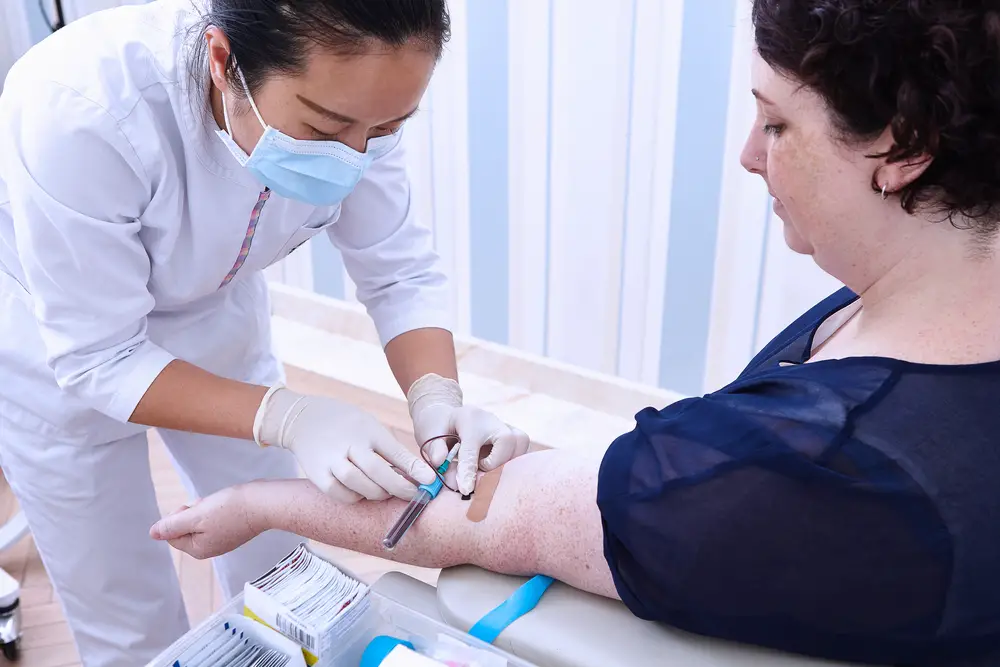
Preparing for surgery can be stressful. Whether it’s a minor procedure or complex operation, understanding the significance of pre-op assessments and blood testing is integral for safety and well-being. With this comprehensive guide on this subject, we aim to answer this important question “What do pre-op blood tests check for?”
Why Pre-Operative Blood Testing Is Vital
Preserving a Smooth Surgery Experience:
Conducting pre-operative assessments and blood tests before any surgery can ensure its success and ensure you remain safe throughout. Your healthcare team should have an exhaustive picture of your health prior to performing any procedure in order to identify risks, allergies and medical conditions that might impact on it or affect its recovery process.
Tailoring Your Care to Your Specific Requirements:
Every patient has individual health requirements. Pre-op and blood testing allow healthcare providers to tailor their care specifically to your requirements by gathering comprehensive health information to optimize surgical success and postoperative recovery care.
The Pre-Op Assessment
Understanding the Process
Pre-Operative Assessment (POA) at an urgent care center refers to an intensive examination that carried prior to any surgical procedure and generally includes:
Thorough Medical History: Your healthcare provider will obtain information regarding any past conditions, surgeries, allergies, and medication interactions as part of a thorough health profile review. This data forms the foundation of your individual profile.
Physical Examination: Our physician conducts a complete physical exam that assesses your overall health with a special focus placed on any area undergoing surgical procedure.
Diagnostic Tests: Your physician may suggest various diagnostic tests like blood tests, electrocardiograms (ECGs), or chest X-rays to identify any health concerns hidden under the surface.
Discourse on Anesthesia: Your options for anesthetic medications will be discussed, along with any allergies or adverse reactions related to these treatments.
Purpose of the Pre-Op Assessment:
The pre-op assessment serves several crucial purposes:
- Identifying and addressing potential complications or risks.
- Evaluating your suitability for anesthesia.
- Preparing you psychologically for the upcoming surgery.
The Importance of Blood Testing
Blood tests, including rapid testing methods, play an indispensable part in preoperative evaluation processes. These rapid tests offer timely results, enabling doctors to gain an important insight into your overall health swiftly. This ensures a smooth and successful surgical experience. But exactly what do pre-op blood tests check for?
Anemia Detection: Low levels of red blood cells or hemoglobin reduce your body’s ability to transport oxygen effectively. Detecting anemia as early as possible through blood testing could significantly impede both anesthesia administration and postoperative recovery.
Monitor Blood Sugar Levels: Diabetics or those at risk for developing it must closely track their blood sugar levels to prevent complications during and post-surgery; thus making this examination an essential aspect of pre-op assessment.
Assessing Blood Clotting Function: Maintaining healthy clotting can be a tricky business; any mismatch can cause excessive bleeding or clot formation that requires further medical interventions to control. Assessing Blood Clotting Function is especially crucial before surgical procedures where bleeding could become an issue.
Evaluating Organ Function: Blood tests can assess the function of vital organs like your liver and kidneys. An imbalance in their operation could compromise how your body processes medications or recovers after surgery, potentially hindering recovery timeframes as a result.
Identification of Infections: Blood tests can detect infections or systemic illnesses. Surgery should be postponed if an active infection exists, as this increases your risk for complications and should be postponed as long as an active infection exists.
Verifying Blood Type: In the event of blood transfusions during surgery, knowing your blood type is crucial to ensure compatibility and safety.
Common Blood Tests Conducted During Pre-Surgical Assessment
Common blood tests administered as part of pre-operative assessments include:
Complete Blood Count (CBC): This exam measures various components in your blood, such as red cells, white blood cells, and platelets.
Basic Metabolic Panel (BMP): This test measures kidney health, blood sugar, and electrolyte balance.
Coagulation Profile: Evaluates blood clotting function.
Liver Function Tests: These tests measure liver enzymes and other markers of liver function.
Electrolyte Panel: Assesses the balance of electrolytes like sodium, potassium, and calcium.
Preparing for Blood Testing
To ensure accurate results from your blood tests, follow these guidelines:
- Fast as instructed by your healthcare provider. This often means no food or drink for a specific period before the test.
- Continue taking your prescribed medications unless instructed otherwise by your healthcare provider.
- Inform the lab technician of any allergies or previous difficulties with blood tests.
In case of unfavorable blood test results, it’s essential not to panic. Instead, take proactive measures to learn about how you can improve your blood tests and address any concerns with your healthcare provider.
Final Thoughts on Pre-Op and Blood Testing
Pre-operative assessments and blood testing are fundamental steps in ensuring the success of your surgical procedure. They provide valuable information that guides your healthcare team in tailoring your care to your specific needs. By understanding the process, being prepared, and following your healthcare provider’s guidance, you can navigate the pre-op and blood testing process with confidence.
Advanced Urgent Care of Pasadena offers a wide gamut of services, including emergency pre-op blood tests. Visit our clinic any time; we are here to serve you seven days a week.

